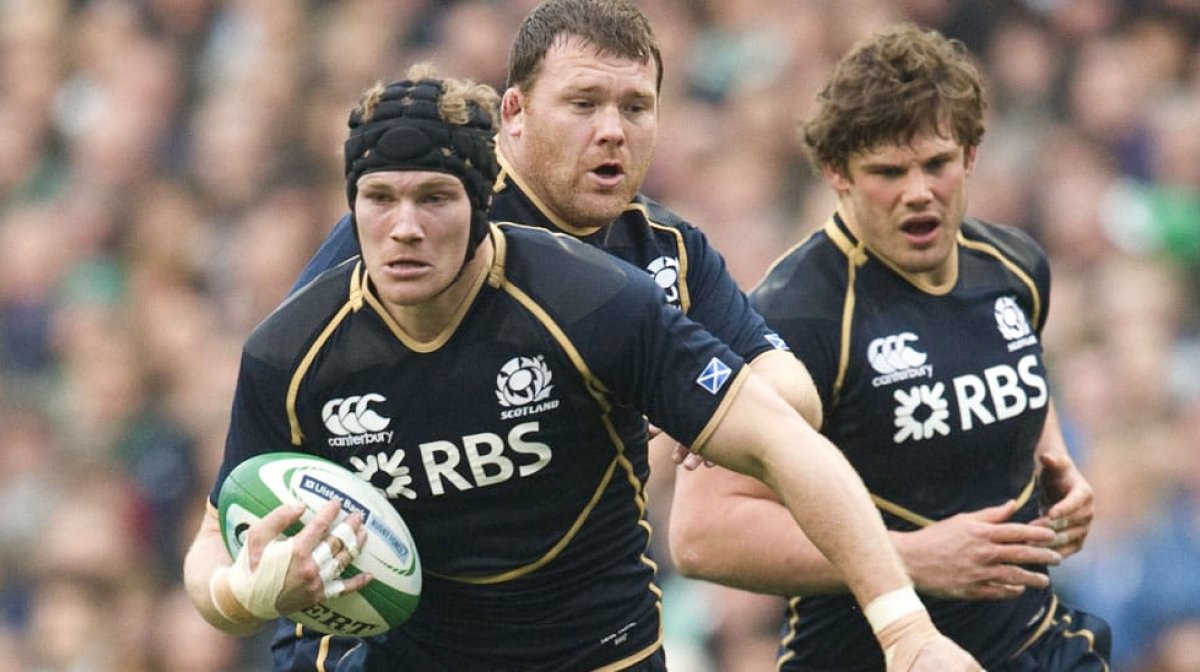The emergence of the elite sport tier since rugby became professional in 1995 has led to claims around the world that the game at grassroots level has been left behind. Certainly, the game is changing, but passion for the game is as strong as ever and national unions are working hard to keep it that way and bring in new players from an early age.
England
Since its early days on the playing fields of Rugby School, rugby in England has been viewed as a game for the upper classes. However, rugby has thrived among all classes in England (although it plays a distant second fiddle to football, which is the undisputed game of the people) and is loved by thousands in the cities and small towns and villages across the country. Match days will find parents, friends and lovers of rugby enthusiastically cheering their teams on from the sidelines and ignoring the rigours of the English winter.
Player numbers are healthy and to ensure interest in the game remains strong the Rugby Football Union is striving to reach more young people through its All Schools programme, which aims to introduce rugby into 750 state schools by 2019. This is complemented by its efforts to recruit and train more coaches and referees. Furthermore, if Devon’s Paignton Rugby Club is anything to go by, the initiatives are working; the club is successfully developing community links and inspiring young players, as Prince Harry found out on a visit not long after England’s untimely exit from the 2015 Rugby World Cup.
Ireland
The success of the Irish national side over the past few years is sparking renewed interest in rugby at grass roots level, which in recent times has been losing players and seen the amateur game struggle. Possibly the pressures of competitive rugby and the commitment required are becoming too much and playing simply for pleasure is becoming more burdensome. Still, in the rugby clubs of Ireland enthusiasm for the game remains as high as ever among the players and fans.
The future for Irish rugby looks positive, as participation in mini rugby is on the rise; Ireland’s task is to keep these very young players in the game. However, as former Ireland captain Paul O’Connell laments, rugby is not the country’s number one sport and children do not grow up with rugby in their blood like those in New Zealand, where practically every boy gets a rugby ball before he can walk. O’Connell may well have a point; only time and the great game of rugby will change that.
Italy
Italy is well known for being football crazy, but few people realise that rugby has been played in the country for over a hundred years, mostly in the north and its popularity is increasing. Italy’s rugby heartland is mainly centred around the Po valley, where the game is played with great passion and a distinctive flair and is supported by fans every bit as enthusiastic and committed as those you’ll find at a major football match.
Most Italians didn’t take to rugby until after the 1987 Rugby World Cup, when it received a huge boost as companies were offered major tax breaks to invest in rugby. During his tenure as President of the Italian Rugby Federation from 1996 to 2012, Giancarlo Dondi, targeted schools and youth rugby in an effort to increase the game’s popularity, an ambition that received a boost when Italy was admitted to the international rugby establishment in 2000 and joined the then Five Nations championship. Now, at the grassroots, young Italians love their rugby and this is translating into a more competitive side at the international level and an Italian style of play that is all its own.
Scotland
As in England, rugby in Scotland has long been viewed as the sport of the ‘upper’ and has therefore been marginalized to a great extent. Even today, the game is played in fewer than 20% of state schools but in the schools and communities where it is played, participants and supporters are as passionate as those anywhere.
Scotland is facing a problem of falling player numbers, but the Scottish Rugby Union has recognised the issue and is taking advantage of the Scottish Government’s CashBack for Communities programme. The funding goes to a network of rugby development officers sent out to primary and secondary schools around the country to introduce youngsters to the game in the hope that they will eventually join local rugby clubs.
Very young children are also engaging in mini rugby programmes that, hopefully, will entice them into rugby rather than football. It is, after all, the kids who will ultimately be the ones to keep the game alive and they would do well to follow the example of players in remote Mull, who happily brave rough seas and long distances to get to training and matches.
Wales
Remember those heady days of the 1970s when the Welsh rugby side was virtually unmatched in Europe and the songs of the fans echoed around the valleys? Since then, Welsh fans have had little to cheer about although the national side is once again becoming a major force in rugby.
The Welsh love their rugby but these days it seems that only one third of those who play the game as children carry on into adulthood. To address the problem, the Welsh Rugby Union has introduced a new initiative, Let us Play, that features Wales captain Sam Warburton and focuses on rugby’s positive values as well as aiming to tackle bad behaviour on the pitch and the touchline.
Perhaps epitomizes the spirit of grassroots rugby in Wales more than the Flint rugby club. It is run by the players for the players (and anyone else who wants to join in) with a never-say-die attitude of comradeship and team spirit – just the approach that will keep Welsh rugby alive. And anyone who still has doubts just needs to head down to the local rugby pitch on game day to see just how well teams are supported and how eager players are to make the side.
France
As it does throughout Europe, rugby in France has to compete with football for the hearts of the people. Yet, in the southwest, there is almost no contest as rugby is virtually a religion. Almost every village has a team and Sundays see villagers of all ages on the touchline urging their team on and doing their utmost to put the opposition off their game. In the village of Larriviere, there’s even a little chapel dedicated to rugby – the Chapel of St Savin that in 1967 was rededicated as the Chapelle de Notre Dame du Rugby.
Now, France boasts the strongest club competition in Europe with teams bristling with stars from around the world and some fear that this will dilute the trademark French flair and complain that overseas players are here today and gone tomorrow. But that doesn’t bother the kids in France’s rugby heartland where week in week out in all weathers they train and battle for selection to their local teams. And the folk there aren’t worried that rugby has not yet become the nationwide game that the authorities would like it to be; it’s their game and they are happy that way.









